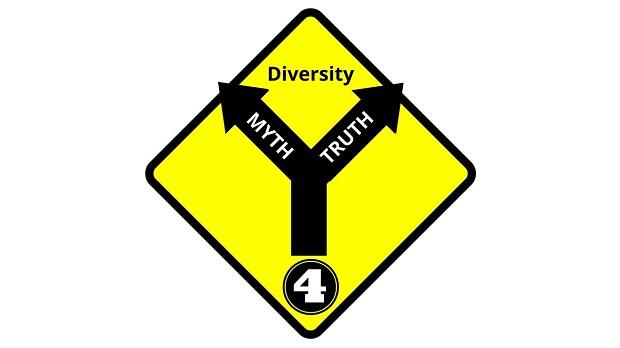
Many migrants come to the United States in search of a better quality of life but are met with adverse challenges that can make living and surviving more difficult. Being a legal citizen does not coincide with receiving the same benefits, basic human rights, and social support as others based on race, citizenship status, and socioeconomic status.
Latino migrants in particular face significant barriers to belonging in the United States, which can gravely affect their mental well-being. The U.S. government plays a major role in the trauma and violence that is faced by the Latino community – through inaccuracies and stereotypes in political discourse, rigorous and intensive immigration policies, violent border control, and lack of resources for migrants.
Mental health resources should be more accessible based on the various contributions that migrants make to the United States, whether they are documented or not. Despite this, mental healthcare is highly inaccessible for migrants in the United States, especially those with undocumented status, even though they face adverse mental health challenges in comparison to other groups present in the United States.
There are many factors that can contribute to why migrants travel to the United States without documentation, including but not limited to: looking for job opportunities to provide for their families, escaping violence and poverty experienced in their native country, and reuniting with family members who have already migrated. Migrants also face intensive processes and legal hardships that make it difficult to obtain citizenship status once they are already present in the country. People living in the United States with undocumented status typically face higher rates of mental health challenges but are unable to access appropriate formal care and resources.
In an article titled, “Why Mental Healthcare is Not a Safe Space for Undocumented Migrants” by Maria Cohut, statistics support claims of mental health challenges that directly coincide with the immigration process and citizenship status. The study found that,“82.7% of 248 undocumented Mexican migrants living near the border reported trauma” (Cohut, 2017). These numbers are very high compared to other U.S. populations and can be attributed to the constant chronic stressors that are faced by those who are undocumented.
These constant stressors exist across multiple domains, including work, family (separation from family), discrimination, economic hardship, stigmatization, exploitation, socioeconomic adversity, and limited healthcare. Those living with undocumented status also have the fear of being deported for seeking formal care and resources, which can greatly jeopardize an already marginalized population.
Another important statistic from the article comes from a study conducted with Latina migrants in particular, which “concluded that this group experiences an incidence of PTSD almost four times higher than that faced by women in the U.S. in general: 34% versus 9.7%.” (Cohut, 2017). An important piece of this study is that time in the United States did not lessen trauma symptoms among the women studied – a fact that is concerning, given that they typically came here to escape violence and severe poverty in their native countries. This also suggests that U.S. citizenship is not as a solution alone, as migrants still continue to face various challenges and traumas even after being present in the United States.
Mental wellbeing and sense of belonging are issues of citizenship in the United States. In Marshall’s piece titled “Citizenship and Social Class” (1950), the definition of citizenship is explored. According to Marshall, citizenship consists of, “a social, civil, and political dimension” (Marshall, pg. 1). Regardless of citizenship status, people in the United States are supposed to have a set of rights that allows them to be treated as human beings. It is evident that many people living in the United States do not receive the benefits of full citizenship as described by Marshall based on their race, gender, socioeconomic status, and citizenship status. The government plays a significant role through intensive immigration processes that make it difficult to feel like one belongs in this country, even if they have citizenship status. The statistics mentioned above can be better understood through examining this role the government plays through ambiguous policy.
Anya’s experience in Ruth Gomberg-Muñoz’s (2016) piece, “The Juarez Wives Club: Gendered Citizenship and U.S. Immigration Law” reveals the difficulties of the immigration process even for a United States citizen. Restrictive immigration criteria, which in theory is supposed to promote the value of U.S. citizenship, in practice dehumanizes U.S. citizens and can alienate them from feelings of national belonging. In Anya’s case, her partner Enrique was undocumented when he and Anya met, and she filed to change his immigration status after they got married in 2010. As part of that process, Enrique had to leave the United States to attend an interview at the U.S. consulate in Ciudad Juarez, Mexico, where he was born. Even after five months, he was still stuck in Mexico, as he was prevented from returning to the United States by an automatic 10-year bar on his re-entry. Anya was working with an attorney, while working two jobs to pay the legal bills and continue to pay for her house. She also had to deal with the difficulty of Enrique being gone, and her frustration with the ambiguity and rigor of the immigration process. She described herself as being “on the brink of a nervous breakdown” (Gomberg-Muñoz, pg. 1).
When people have come to live in the United States without documentation, changing their status legally is a very tedious process. First, they can become eligible for a green card, but they must leave the country to obtain it, and are then can be met with an automatic 10-year bar on reentry. According to the article, “the only way they can return lawfully is if their U.S. citizen petitioner can prove he or she would suffer ‘extreme hardship’ in the event of a 10-year separation” (Gomberg-Muñoz, pg. 2). This process ends up ripping families and loved ones apart, while also dehumanizing the U.S. petitioner. This is paradoxical, as U.S. citizenship is meant to be positive, and people living here deserve the social, civil, and political aspects of citizenship that Marshall describes.
Through the process of objectification and dehumanization, it becomes easier to lack empathy and pass policies and laws to govern behavior, limit social integration, and obstruct economic mobility. A piece by Leo Chavez (2013) titled, “The Latino Threat,” illustrates how American media perpetuates harmful stereotypes that Latinos are unwilling or incapable of integrating, or becoming part of the national community. Mexican migrants in particular have been represented as the quintessential “illegal aliens,” that are criminals and thus illegitimate members of society undeserving of social benefits; including citizenship (Chavez, pg. 4).
Inaccuracies and stereotypes in political discourse surrounding border control have also contributed to the difficulty of living and surviving in the U.S. as Latino migrants. The former president has made inappropriate and ignorant remarks about Latino people at large rallies broadcasted on national television, while also attempting to challenge DACA (Cohut, 2017). It is increasingly difficult for Latino migrants to feel like they belong and take care of their mental well-being when the government and citizens are seemingly against them and do not treat them like they deserve to be a part of the country.
The process of migrating to the U.S. involves significant violence and death which the U.S. government greatly contributes to. In a book titled, “The Land of Open Graves” by Jason De León (2015), the experience of border crossing is explored. De León argues that the death, disfigurement, and sexual abuse that migrating people experience en route “are neither random nor senseless, but part of a strategic federal plan,” a “killing machine that simultaneously uses and hides behind the viciousness of the Sonora Desert” (De León, pgs. 3-4). “Prevention through Deterrence” is a set of policies by the U.S. with the intent to deter illegal crossings of its southern border with Mexico. Border control agents have been known to kill and even hide the bodies of migrants in the desert. The violence and trauma of crossing the border is directly supported by government policy and is also hidden by blaming it all on the natural effects of the desert terrain.
This all plays into the difficulty for migrants to get mental health attention in the U.S., as the government has demonstrated that it does not see them as being worthy of care or assistance. De León asserts that ”the benefit of the chronological distance from the pain and suffering of past migrations is that many Americans today have no problem putting nationality before humanity” (p.26). This can be seen through the mass support that former President Trump had when wanting to “build the wall” and the ways in which the U.S. is concerned with security, border safety, militaristic power, and patriotism. Those who successfully cross the border often do physically demanding, essential jobs that U.S. citizens are reluctant to do, such as meat processing and fruit-picking, while making significantly less money than they need to survive and provide for their families.
There are many adverse challenges that Latino migrants face when attempting to migrate to the U.S. They are treated as less than human, and undeserving of citizenship benefits despite the contributions they make to the country. Mental health is incredibly important for this population, as studies have shown that they experience mental health issues and trauma at a higher rate than other U.S. populations. Despite this, mental healthcare is highly inaccessible for migrants in the U.S., especially those with undocumented status. The role the U.S government plays in the violence and death of Latino migrants is despicable and appalling. The ambiguous immigration laws and policies, intensive processes, and border control have made life for migrants significantly more difficult.
In order to combat this reality and address the issues of access to for migrants, mental health resources need to be more accessible and affordable for the public. There is a need for a reallocation of funds to mental health resources, so that mental well-being is no longer considered a luxury that few can afford. Increasing state and city budgets for these resources would allow for free or low cost counseling that can be accessible for everyone. Before these things can happen however, there needs to be a transformation in immigration discourse and a reimagination of citizenship and borders. In order to feel a sense of belonging and take care of mental wellbeing, those present in the U.S. deserve to have a set of rights, regardless of their citizenship status, that allows them to be treated as what they are: human beings that exist on this Earth despite borders.
Chavez, L. R. (2013). The Latino threat constructing immigrants, citizens, and the nation. Stanford University Press.
Cohut, M. (2020, July 14). Why Mental Healthcare is Not a Safe Space for Undocumented Migrants. Medical News Today. Retrieved July 20, 2022, from https://www.medicalnewstoday.com/articles/why-mental-healthcare-is-not-a-safe-space-for-undocumented-migrants
Gomberg-Muñoz, R. (2016). The Juárez Wives Club: Gendered Citizenship and US immigration law. American Ethnologist, 43(2), 339–352. https://doi.org/10.1111/amet.12309
León Jason De. (2015). The Land of Open Graves: Living and Dying on the Migrant Trail. University of California Press.
Marshall, T. H. (1950). Citizenship and social class: And other essays by T.H. Marshall .. The University Press.


















